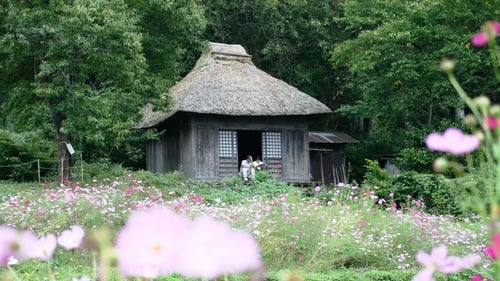
Oume
As the film begins, Takao (Akira Terao) and Michiko (Kanako Higuchi) have already pulled up their Tokyo roots and moved to a village that is Takao's ancestral home. They visit a thatched cottage that serves as a memorial shrine (amidado) for the village dead and chat with the attendant, the spry 96-year-old Oume (Tanie Kitabayashi). Together they admire the view -- from an inspiring distance. Oume, it turns out, is a kind of sage, whose thoughts and observations are a popular feature in a column in a local newsletter. Her amanuensis is a mute, sweetly smiling young woman named Sayuri (Manami Konishi), who is as devoted to Oume as Oume is to the souls of her beloved dead.
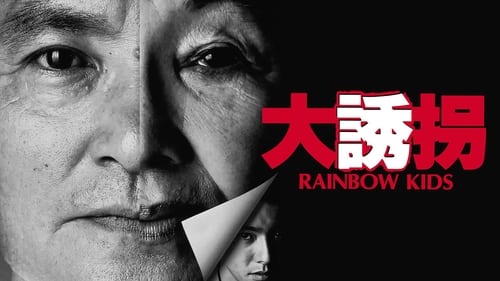
A wealthy matriarch is kidnapped by a gang of three. She is insulted by the amount of money they propose to demand as ransom, and a strange interchange of roles takes place.
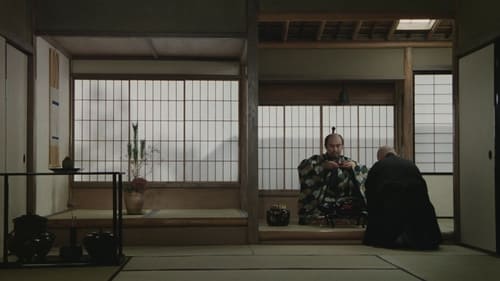
Mother
Late in the 1500s, an aging tea master teaches the way of tea to a headstrong Shogun. Through force of will and courageous fighting, Hideyoshi becomes Japan’s most powerful warlord, unifying the country.
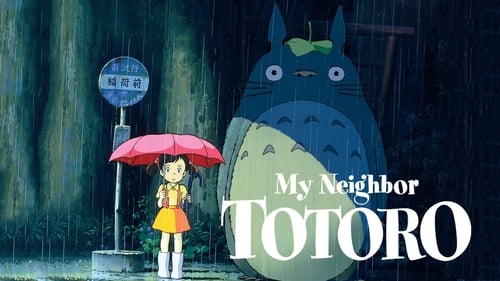
Granny (voice)
Two sisters move to the country with their father in order to be closer to their hospitalized mother, and discover the surrounding trees are inhabited by Totoros, magical spirits of the forest. When the youngest runs away from home, the older sister seeks help from the spirits to find her.
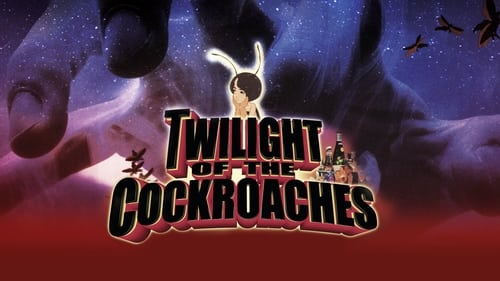
Torah (voice)
The cockroaches of Saito's apartment live in peace with their human host, who gives them lots of space to breed and plenty of leftovers to munch on. In the midst of these high living times, Naomi and Ichiro plan to get married and start a family. But when a hard-bitten stranger roach named Hans appears with news of war with the humans across the lawn, it foretells disruption-not only of Naomi and Ichiro's relationship, but of the hive's entire way of life.
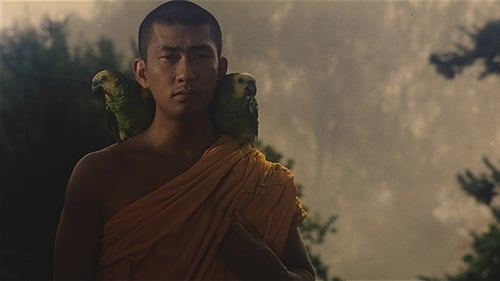
Old Woman
In the War's closing days, when a conscience-driven Japanese soldier fails to get his countrymen to surrender to overwhelming force, he adopts the lifestyle of a Buddhist monk.
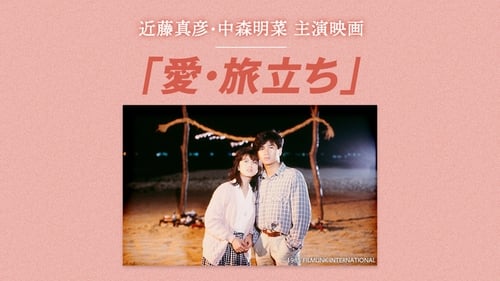
A girl suffering from an incurable disease get in a coma, while her boyfriend visit her to the hospital, she visits the beyond.

Rumiko Arai, a 20-year-old girl working in a sawmill, meets a driver, Sekiguchi, and they begin a relationship with the promise of marriage. But Rumiko's grandmother tells her that they are both cursed by an ancient evil.

Tane
Uta married a priest who saved her when she tried to commit suicide at a waterfall. The love triangle between a lustful priest, his second wife and his son Masao.

Japanese film.

Tora-san returns to his family home to learn that his brother-in-law cannot go to Mitsuo's (Tora-san's nephew) athletic event. Tora-san volunteers to take his place, but gets into an argument with his brother-in-law's boss and returns to the road. He meets a young woman in Niigata who, unbeknownst to him, is a popular enka singer.
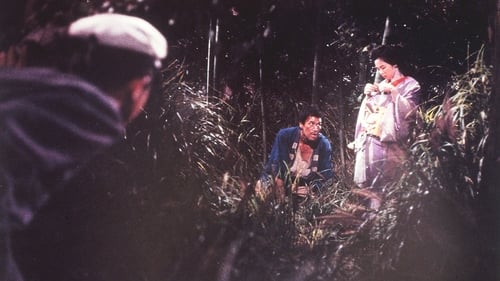
Tea house's old woman
Japan in the 1940s. A high school boy went into a magic encounter with Ozuka Hana, a geisha (pub-girl) when he traveled through Amagi Pass. A mysterious murder took place afterwards, an Ozuka was held responsible. 40 years later, the boy, who became a printing shop owner, was visited by a retired policeman who came from Amagi Pass. The truth then started to reveal itself.
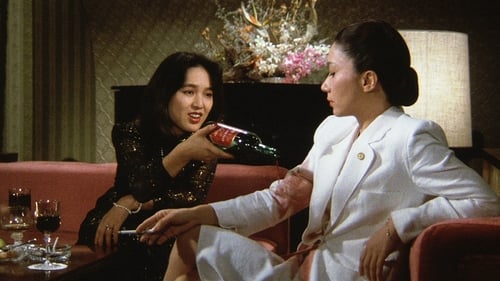
Harue Shirakawa
A car going at 25 mph plunges into the sea at Shinko Harbour, Toyama prefecture. Inside is the local business magnate Fukutaro Shirakawa, who perishes. Riding alongside him and surviving unhurt is his second wife, Kumako. It soon comes to light that Kumako’s husband was insured for 300 million yen and she is arrested on suspicion of murdering her husband for the insurance money. The newspapers denounce her as an evil woman, while the public is in no doubt about Kumako’s crime. Ritsuko Sahara is chosen as her defence attorney but the pair clash over almost everything...
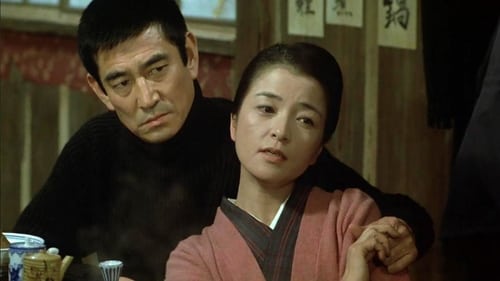
Masayo Mikami
A detective goes out of his way to crack the case of a serial killer who specialises in murdering police officers.
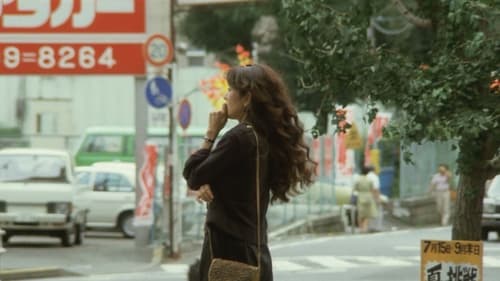
Sukeno
Keiko Inagawa (Asami Kobayashi) pays a visit to neurologist Aizawa about her fiancé Tatsuo Tamura (Kaoru Kobayashi). A mysterious case involving the disappearance of Tatsuo’s three brothers, one after the other, is yet to be resolved and now Tatsuo, seized with the idea that he too may disappear, has had a nervous breakdown. Aizawa suggests that Tatsuo recount his dreams as a means of solving the mystery, since human beings have an instinct that foretells the near future in the form of a dream. Keiko and Tatsuo eventually discover that the three disappearances have a strange connection…
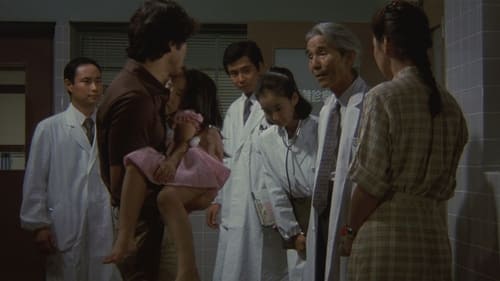
Akira's mother
Masako, a five-year-old girl living in the suburbs of Chiba, gets a tiny scratch on her finger while playing with mud in a marsh. After that, she suffered all kinds of horrible spasms including biting her tongue. The doctor checks on her for hours on end and arrive at the conclusion that she has tetanus. It seems like the devil has come to dwell in the little girl's body. Her parents have to to bear the sufferings of their child and face the fear that they might also be the victims of tetanus. The once peaceful family has changed completely and the three have been cast into a bottomless hell.

Akira leaves for the Mt. Gassan foothills before winter's onset, visiting the local temple and interacting with the residents all while falling for fair Fumiko.
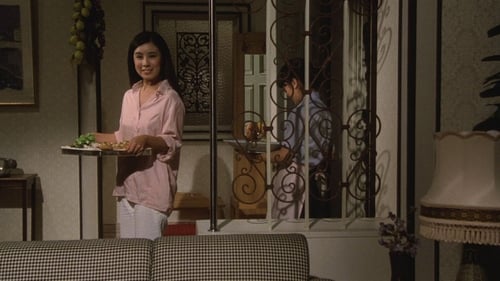
Noriko had been engaged to marry Toshiyuki Fujimura, who worked at her father’s bank. One day however, Fujimura mysteriously disappears. From that day, Noriko keeps herself locked up in her room. After three years of Noriko shutting herself up like a doll without a soul, Fujimura suddenly returns. Noriko’s family’s first reaction was strong rejection, but Noriko asks no questions and embraces him warmly. One day, as Noriko is cleaning her husband’s room, three envelopes accidentally fall from the pages of one of the books she had picked up. The first letter is dated August 11th, saying that his wife had suddenly taken ill. The second, dated August 20th, says that his wife is now critically sick, and the third letter, dated September 1st, is an announcement of his wife’s death. The wife is obviously Noriko, but she is alive and well. Do the letters then mean a preliminary notice of Noriko’s death?

The story of the silk industry and the young girls who worked as silk spinners in the early 1900s in Japan. The silk mills were located in Okaya which lies just beyond the Nomugi Pass. The women and girls worked in a hot, humid atmosphere without rest, and endured those conditions and sexual harassment to earn money for their poor families. Across the ocean, it was the great depression in America.
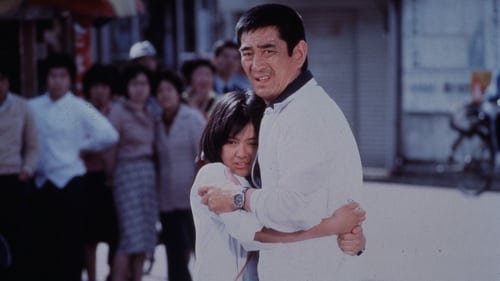
Kiyo Matsushita
Special forces officer Ajisawa leaves his paramilitary group to take care of his newly-adopted daughter, Yoriko: the sole survival of a bloodbath for which he is responsible. Years later, Ajisawa is forced to return to the scene of the tragedy for his new job as a claims adjuster where he is subsequently arrested for his suspected involvement. But the threat of jail time is the least of his worries as his former organization comes gunning for him.
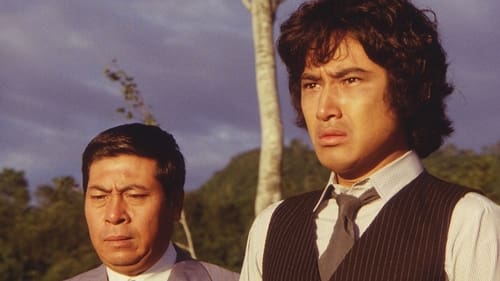
When an American is murdered in a Japanese inn, Tokyo police detective Munesue follows the trail of the killer to New York. There he is joined by a New York City detective named Shuftan and together they sort out the crime.

Tamiko's Grandmother
Teenage cousins Masao and Tamiko fall in love when she comes to his riverside brewery house to take care of his sickly mother. Family objections ensue as Tamiko is older than Masao, and the two cannot marry in peace.

Horror film based on the story by Ryunosuke Akutagawa.

Nanjo, a new teacher at a girls' high school, unwittingly becomes the object of gossip when he buys underwear for Shimizu and spends his vacation with a female teacher. It turns out that Nanjo and Shimizu have fallen in love.

Moko's mother

A man who survived the war carries the will of his comrades in arms, walking across the country visiting the bereaved families.

Tome
Comedy of a phony doctor.
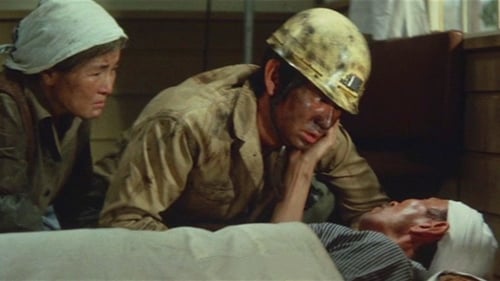
Young coal miner Takeda leaves Kyushu in search of a better job in Tokyo, only to fall into the lucrative yet dangerous life of a yakuza.

A five year old boy leaves his mother and grandparents to see his father who has gone to work in Osaka.

Harumi
Fukuzo, Kato and Matsuko, Kato's wife, are operating the "Kurenai Sightseeing Service" in Tokyo. Fukuzo and Kato were comrades during the war. One day Fukuzo guides Harumi, an old woman, to the Yasukuni Shrine where the souls of fallen soldiers are enshrined. Finding she has no place to go, Fukuzo carries her to his shack by the sea.

Shino
Horror story about a girl who is shadowed by an invisible man.

Second part to "River Without a Bridge" (1969)

Matsuko Fukuji
A film set in Nagasaki examining prejudice against atom bomb victims.

Otowa is a former Seto Inland Sea island farmer who has moved to the mainland in order to find work, but instead ends up dead. The film begins with the discovery of her corpse, which leads to an investigation that uncovers the narcotics, prostitution, and murder in which many poor farmers had found themselves trapped after World War II.
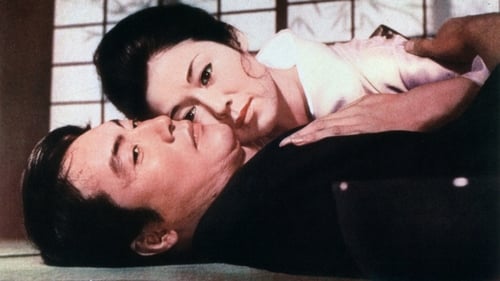
Toyo
The entangled relations between the son of a seductive tea-ceremony teacher and the women in his father's life.
Based on the novel by Kawabata Yasunari.
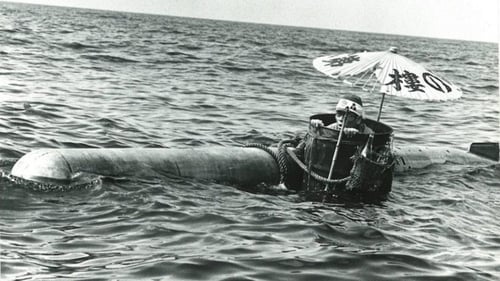
A soldier has been in the Japanese military for the entirety of WWII, and in that time, his dedication to the army has never faltered. However, as the war draws to a close, his commanding officers become increasingly desperate and push their men to ever more absurd extremes. The ridiculousness of the orders from above peak when the hero of the story is assigned to drive a one-man submarine straight into the hull of an enemy battleship.

In a high school, two men are fighting over a beautiful female teacher who has been assigned as an English teacher.

After an argument with his father a son leaves his home and comes back only, as an adult, many years later just to cause them problem after problem.

Orin
The life in a small village in Shikoku and the love story between two young people.

Old Woman Kane
In a mountainous region of Japan, Lord Arakawa kidnaps the men of nearby villages to use as slave labor, producing gunpowder from his sulfur pits. A band of young boys decide to rescue their enslaved fathers on their own.

Young Mariko is torn between two admirers, Natsukawa and Rikizo.

Kikuko Sasaki
When a US army sergeant is found drowned in Tokyo Bay, an investigation is launched to determine how and why he lost his life. The investigation uncovers a black market scheme involving counterfeit money, murder, and conspiracy.

Hayashida's mother
Gisuke Hayashida is an illegal dentist during the day and a burglar by night. One night during a burglary he witnesses a train derailment. Some communists are found guilty of causing the incident, but he knows it wasn't them. He can save innocent people but for that he must confess his own crime.

Tomi Ishiguro
A young girl in an industrial town is saving her money to enter college. But her drunken father loses his job, her mother cannot make ends meet, and then the boy she likes loses everything when his factory fails. She takes all her savings out of the bank and offers them to him to make a new start. He refuses at first but eventually agrees and so she goes back to school to tell her teacher that she has decided not to continue college, that she is young and strong, and can make her own way in life.

A young girl knows that she is going to die and in this she is supported by the devotion of the boy who loves her. They originally met at the hospital. There it transpired that the only way to save her life was to sacrifice an eye and part of her face. The operation seems a success. Later, however, her other eye becomes affected. She feels she must let the boy go, and yet she depends so much upon his devotion.
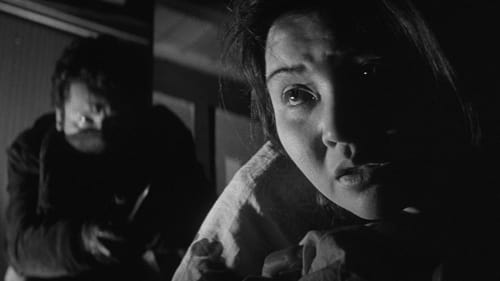
Sadako, cursed by generations before her and neglected by her common-law husband, falls prey to a brutal home intruder. But rather than become a victim, she forges a path to her own awakening.
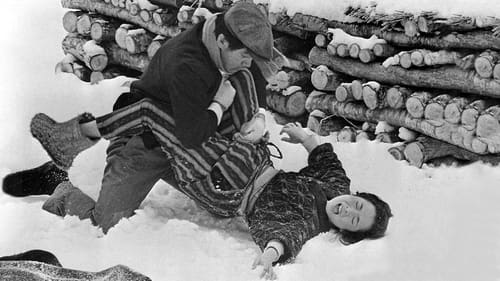
A sake factory worker on holiday returns to his home town, where he rapes the wife of one of his co-workers in the forest. The other man returns home to find his wife changed and suspects that she has been unfaithful.
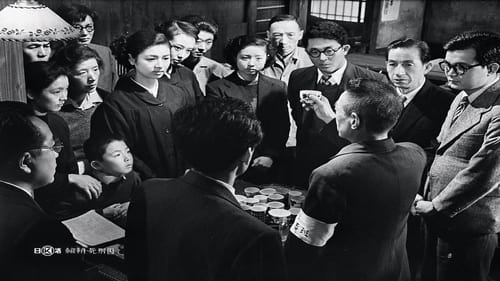
On January 26, 1948, a robbery of the Teigin bank took place in Tokyo - the criminal poisoned the bank employees and fled the scene with a large amount of money. In parallel with the investigation conducted by the Japanese police, journalists are also trying to find the culprit. Based on a true incident.
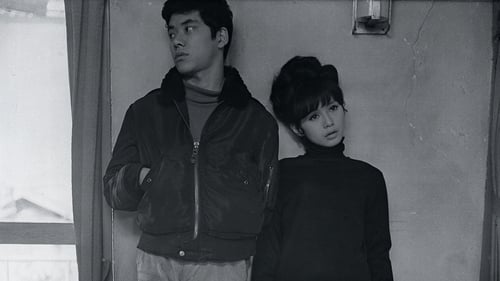
Yuka's mother
Yuka is a “good-time girl” from Yokohama who is persuaded by her papa to sleep with a foreign business executive so that he can close an important deal. Nakahira presents a shrewdly observed portrait of a modern, sexually assertive woman—an unsettling character for a changing but still patriarchal society.

Yuki Nishizaka
Two friends, both members of a Japanese cargo boat, return to Japan after a three-month voyage and have just 24 hours shore leave. In those hectic hours, they vie for the affections of a hotel owner's daughter but wind up with separate girl friends and attempt to bring together the parents of a baby who have separated.
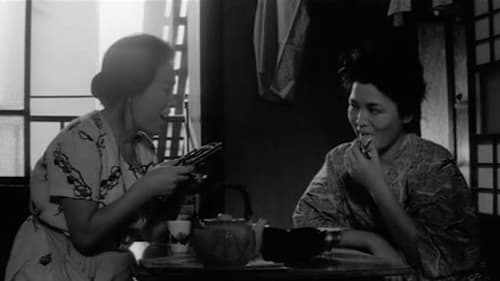
Madam
A woman, Tome, is born to a lower class family in Japan in 1918. The title refers to an insect, repeating its mistakes, as in an infinite circle. Imamura, with this metaphor, introduces the life of Tome, who keeps trying to change her poor life.

Kimie

Wakae is a 15 year old girl who lived under the same roof with her alcoholic father and stepmom. Her mother had died years ago. She spends her nights at a rundown bar, sharing drinks and cigarettes with the lowlife drunks. She has nowhere to turn and no one to talk to, until she is reunited with her childhood friend, Saburo, who brings warmth to her heart.

Fusakichi's mother
School teachers responsible for the lives of their students work to evacuate Allied bombings near the end of WWII.

Shiraki, Teacher
Shinko Terasawa was always considered to be the odd ball of the bunch. At a time when romance was against school regulations, Shinko was the first to take a bite out of the forbidden fruit. Expelled from her former school, she finds herself in an all-girls school in Jokamachi, where rumors fly. One day, Shinko delivers an anonymous love letter addressed to her English teacher, Ms. Shimazaki. Convinced that the students are playing a prank, Ms. Shimazaki is adamant about getting to the bottom of this "problem”.

Not too long ago, Soichiro was considered one of the most powerful men in business. But his business had failed, his granddaughter had committed suicide. There was nothing in his life anymore that he could look forward to. Sochiro was ready to put an to it end to all. As he drives down the Usui Pass, headed toward his summer house in Karuizawa, a girl in red heels, wearing nothing else but a coat jumps in front of the car.

A high school boy and girl in the midst of their youth try to get their parents to remarry.

Ume
Set in Kawaguchi in the early 60s, this simple story chronicles the lives of foundry families and one girl's dreams of higher education.

A detective sets out on a manhunt to catch a murderer before the crime's statue of limitations runs out.

Kumi
Two obaachans become fast friends listening to music in front of a record store. They both boast about their loving sons but in reality, one had just escaped a retirement home and the other was looking for an escape from her son and daughter-in-law. With nowhere to go, the two wander around, befriending a cosmetics salesman and a kind waitress who give them beer. This biting social satire starring two memorable grandmothers, scripted by Yôko Mizuki, picked up on Japan’s aging population problem far ahead of its time.

Sumi
An Indian prince leaves his world of comfort and riches behind to wander and meditate for six years in search of spiritual enlightenment. Siddartha (Cojoin Hong) turns his back on the old religion when people are starving needlessly and holy rituals include human sacrifices. During his meditations, he is tempted by erotic dancing women, demons, and the evil machinations of his criminal cousin. Devastate to attain the spiritual perfection and become the Buddha. He travels to convert followers by his kindness and wisdom, gaining a multitude of believers when he stops an elephant from crushing a local priest. Buddha of course goes on to become one of the great religious leaders of the world.

The university professor Ozeki Hitoshi (Ryu Chishu) is regarded as an eccentric by people in his surroundings. When his daughter Tokiko is asked to marry a colleague, she and her mother are overjoyed, but Hitoshi is not satisfied with the situation.

A promising dancer asks her professor to write a libretto for a Nō play. He then introduces her to a student of classical literature, but also a classical theatre student in the hope that the latter will marry Senya..

Saoko
Late romance by acclaimed filmmaker Kinugasa Teinosuke.

Story of a well-to-do family.

Chika, Batasuke's wife
In Osaka's slum, youths without futures engage in pilfering, assault and robbery, prostitution, and the buying and selling of identity cards and of blood. Alliances constantly shift. Tatsu and Takeshi, friends since boyhood, reluctantly join Shin's gang. Shin's an upstart and moves his gang often to avoid the local kingpin. Hanoko is a young woman with ambitions: first she's in the blood business with her father, then she joins forces with Shin. She soon breaks off that partnership, even though she's taken the sensitive Takeshi under her wing. Double crosses multiply. Those with the closest bonds become each others' murderers.

Kikuji is the scion of an Osaka merchant family whose traditional power is matrilineal. Instructed by his overbearing mother and grandmother to give them an heiress for the family business, he stands by helplessly as his wife is thrown out of the house for producing a son. Driven to a life of dissipation - his mistresses also fail to produce daughters - in the end he is just too tired to care.

Drama which shows the struggle of Fumiko, a female teacher, at work and at home.
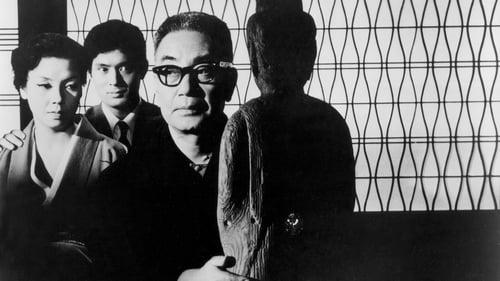
Hana
A middle-aged husband of a younger woman finds her youth intimidating to the point that he cannot become aroused. His solution involves the introduction of his daughter's lover to his wife.

Grandma Shigeko
Kiku and her brother Isamu are social outcasts, children of a prostitute mother and black GI father, in postwar Japan.
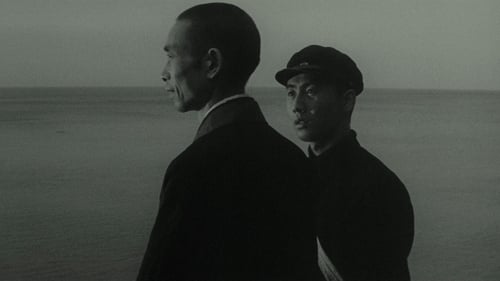
Aki, Goichi's mother
Learning of his family's collapse, acolyte Goichi, sent to study silently at the Temple of the Golden Pavilion, must endure acute psychological distress.

Tetsu Koyanagi
Aya successfully stages a fashion show in Osaka and in the train on her way home to Tokyo accidentally treads on a man's foot. The man whose name is Rentaro is not amused. Just afterwards she notices that he is reading a magazine which carries her picture which he crushes and throws under his seat. One of her customers in Tokyo is a pretty girl named Kana for whom she had designed a dress which at first seems quite satisfactory. But a few days later Kana brings it back. It seems her brother thinks it terrible. But when Kana brings the dress back she meets Aya's brother, Takeshi, with whom she becomes friendly and Takeshi gives her a new dress which he smuggles out of his sister's office. When Aya finds Kana's discarded dress and misses one belonging to another customer she goes to see Kana's brother, and to her surprise finds him to be the fellow whose foot she'd stepped upon in the train...
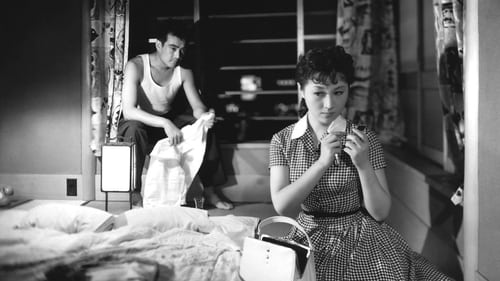
Two detectives begin a stakeout based on the slim chance of catching a murderer whom they suspect will try to reunite with an old flame.

Doctor
A woman who grew up in a prestigious household, begins to have an affair outside the marriage.

Suga Akabane
A female reporter is fired for writing about police corruption; to make money while hiding from the press, she posts a bounty upon herself.

Based on Kakuko Mori's autobiography, about her life and retirement from acting due to her increasing blindness.

The first postwar war movie depicting the tragedy of a special force that shook the world at the end of the Pacific War, with thrill and speed

Mitsu Asai
A woman falls in love with her sister's fiancé.

In the backstreets of Ginza, the boss of a hairdressing salon is found dead, killed by strangulation. The detective on the case soon hears rumors about the murder.

The story of a novelist whose wife is confined in a mental hospital. His love for her drives him to write about her, though he runs into trouble when her parents accuse him of cashing in on her misfortune.

Otaka
In 1906, after finishing a tough migrant job in the Philippines, Takichi has returned to Japan. He starts to work as a rickshaw driver, but his lover had died of an illness, leaving a baby girl, Hatsue. Hatsue grows up beautifully and falls in love with Shintaro. But Takichi objects to their relationship...

Kane
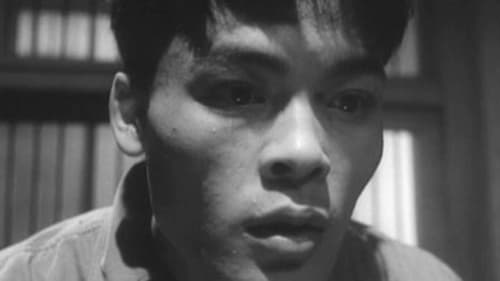
Satoe Miyazaki
Police beat a murder confession out of four innocent men who are then sentenced to death. Based on a true story.

A battle for a large sum of money unfolds on the docks near a steel mill in a foggy atmosphere. Manzo, an engineer on the verge of retirement, witnesses two men shooting each other and collapsing on the quay while his assistant Shinsuke is away.

Nobuyo
Based on the novel by Torahiko Tamiya.

In the War's closing days, when a conscience-driven Japanese soldier fails to get his countrymen to surrender to overwhelming force, he adopts the lifestyle of a Buddhist monk.

Japanese drama film.

From runaway brides to a typhoon, the continued adventures of Ushikata police station.
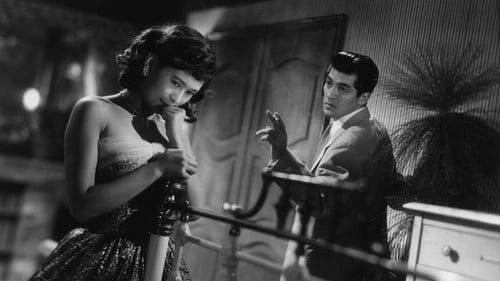
Nobuko is a widow who lives with her daughter-in-law Tamiko and her brother Junjiro. The family's gatekeeper, Komatsu, is attracted to Tamiko, but she is encouraged to marry a doctor and he is afraid to tell her his feelings.

Hioki's mother
In the dying months of the Meiji era, a sympathetic student befriends a married couple, but soon realizes they share a curiously strained relationship stemming from an unknown incident in their past.

An ethical, young tax collector new to his area encounters increasingly absurd individuals and groups coping with their post-war woes.

Aunt of Matsutaro

Students in a small rural school love their poor but unconventional teacher Mr Matsukuma although he is misunderstood by most of the villagers and is forced to leave. After his departure there is great depression but there is a chance to rekindle the lantern of the title and the values Matsukuma represented ...

Ofuki
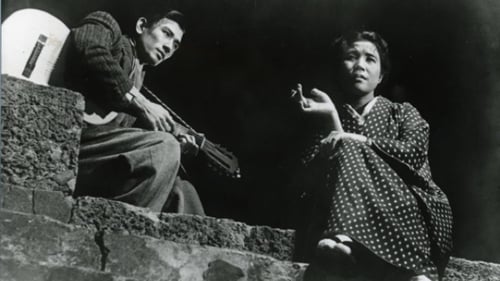
Ichizo's wife
At the close of the war in Japan, a widowed mother makes every possible sacrifice to bring up her ungrateful son and daughter who are unimpressed with their poor standard of living at home. They gradually reject her in search of the material comforts that working as a maid cannot provide. The mother's despair becomes interminable.

Nobuko Otowa won the Blue Ribbon for the Best Actress for this movie among others.

Ginko, a poor cobbler's daughter, becomes a geisha to support her family. She passes from one geisha house to the next, trying to find love and hope in the process. No matter how hard she tries, she just can't escape her sad fate.
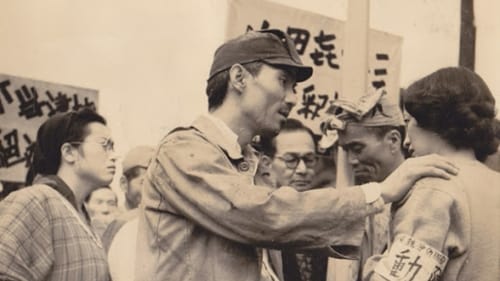
Ohana
Onna Hitori Daichi wo Yuku (A Lonely Woman in a Lonely Land, Kinuta Production, 1953) was the second feature film directed by Kamei Fumio, who is known as a master of documentary films, and followed his “Haha Nareba Onna Nareba(Become a Mother, Become a Woman)” (1952).

Aunt Otora
Japanese film.

Fusako Kawai

Mrs. Inokuma
The picture belongs to the jidai gekki (historic) genre. It is a powerful story of violence and eroticism, picturing a world at once sordid and poetic, with two central themes which intermingle to compound an admirable panel of a critical period in Japanese history: the great famine in the mid 19th Century.
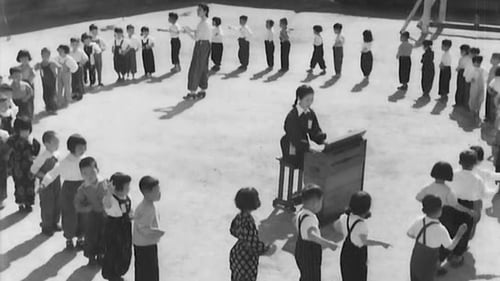
Otoyo
Shows the devastation caused by the atomic bomb, and by use of a fictional storyline, portrays the struggle of the ordinary Japanese people in dealing with the aftermath.

Old woman
Bittersweet shomin-geki drama by Keigo Kimura

Hide

Tami
The fall of an accountant enthralled by the sexual charms of a cabaret dancer.

Mrs. Saeki
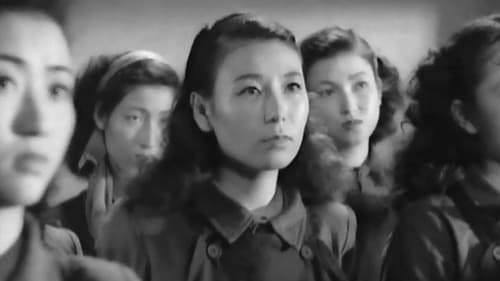
The critical establishment was clearly not prepared to accept a woman's prison film featuring former prostitutes recovering from venereal diseases, unwanted pregnancies, and estranged lovers. With its cat fights, hysterical tantrums, film noir lighting, and dramatic music, White Beast is indicative of the new influences of the Hollywood psychological thriller on Naruse. Caged (John Cromwell, 1950) initiated a cycle of women's prison movies in the United States that may or may not have been shown in Japan, but the stylistics of White Beast draw on the same paranoid woman's films and film noir conventions that preceded the American cycle.
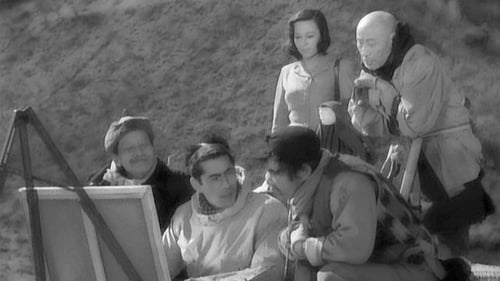
Yasu Hiruta
A celebrity photograph sparks a court case as a tabloid magazine spins a scandalous yarn over a painter and a famous singer.
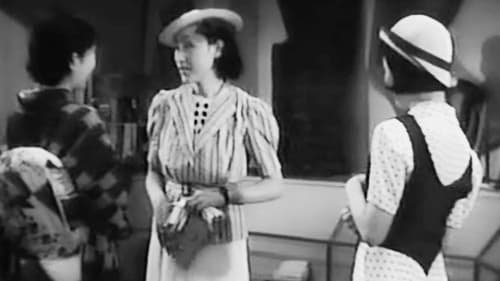
Part 2 of a 2-part romance (fist part - Kafuku zempen) based on a story by noted author Kikuchi Kan. In the second half, we discover that Toyomi is pregnant -- and while Shintaro and Yurie are on their extended honeymoon, she bears his child, a girl named Kiyoko. She is supported in adversity by Michiko -- and gets considerable moral support from not only her own mother but also from Shintaro's mother and siblings. Even more surprisingly, Yurie strikes up a friendship of sorts with her. When Yurie learns that the child is Shintaro's, she convinces Toyomi that it would be best to let Shintaro (and her) raise Kiyoko, so Toyomi can get on with making a proper life for herself. Tearfully, Toyomi agrees. Sometime later, Michiko goes to visit Toyomi -- and sees her at work, as a kindergarten teacher.







































